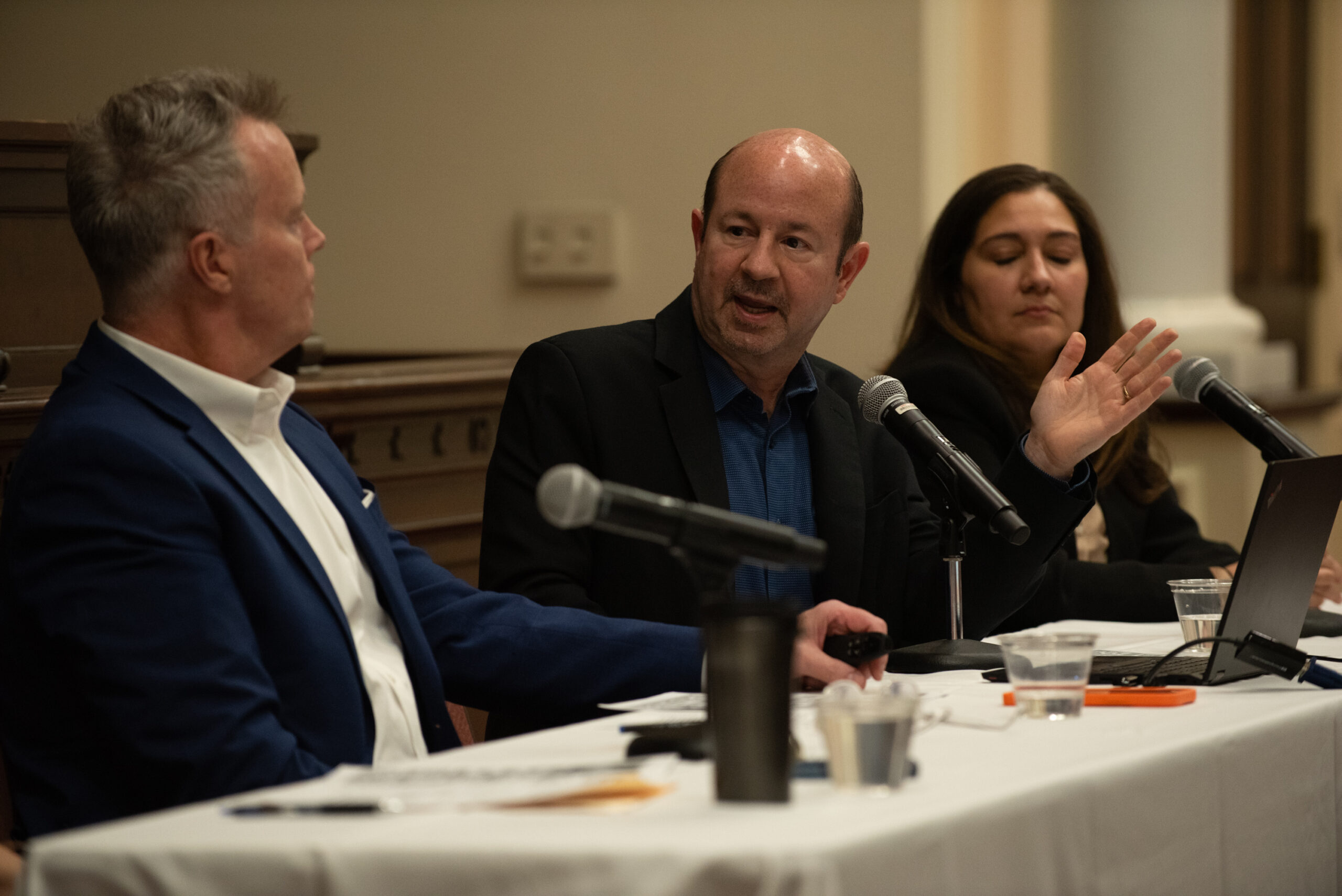In a world increasingly shaped by digital conversations and global connectivity, the role of accurate information is paramount. On October 10, 2024 Professor Amy Sinden hosted a panel discussion featuring Dr. Michael Mann, a renowned climate scientist and member of the National Academy of Sciences, alongside Pete Fontaine and Amorie Hummel of Cozen O’Connor, who represented him in a defamation suit that offered a compelling narrative on the intersection of climate science, disinformation, and the law.
Dr. Mann—known for his work on the “Hockey Stick” graph, which illustrates the rapid rise in global temperatures that has accompanied industrialization—was at the center of a controversial battle over scientific integrity and public trust. His story highlights the persistent challenges faced by those advocating for climate action.
The panel addressed the notorious “Climategate” incident, where stolen emails were used out of context to discredit climate scientists, including Dr. Mann. This incident, just weeks before the 2009 Copenhagen International Climate Negotiation, aimed to undermine public trust in climate science. The well-coordinated disinformation campaign generated doubt and skepticism, illustrating the power of misinformation in shaping public perception and policy.
Dr. Mann pursued legal action against bloggers who falsely accused him of manipulating climate data. The legal journey was arduous, involving investigations by Penn State, the National Science Foundation, and other federal agencies, all of which exonerated Dr. Mann of any wrongdoing. Dr. Mann’s legal team ultimately prevailed, winning a $1 million jury verdict in his favor.
The courtroom battles emphasized a critical aspect of the fight against disinformation: the need for robust legal frameworks to protect scientific integrity. The panelists discussed how defamation laws can act as a deterrent against knowingly spreading false information, thereby safeguarding public trust in science. The lengthy legal process, however, highlights the barriers individuals face without the resources or support to pursue such cases.
The verdict in Dr. Mann’s favor was a significant milestone, sending a strong message to those who seek to discredit scientific findings with falsehoods. Yet, as the panelists noted, this victory came at a significant personal and professional cost to Dr. Mann, who faced scrutiny and credible threats throughout the process.
The discussion also touched upon the broader implications of climate disinformation. Public trust in experts is vital for informed decision-making, especially on critical issues like climate change. Building this trust requires more than just presenting facts; it involves engaging with the public in ways that resonate with their values and concerns. The panelists suggested that framing climate action in terms of national security or public health could help bridge the gap between scientific understanding and public acceptance.
The panelists also highlighted the role of education in combating disinformation. Educating young people on scientific methods and critical thinking is essential for developing a society that values and trusts scientific expertise. This long-term approach is crucial for creating a public discourse resilient to the influence of disinformation campaigns.
As we continue to navigate the challenges of climate change, the lessons from Dr. Mann’s experience serve as a reminder of the critical role that accurate information and public trust play in shaping our collective future.
Author bio: Bertilio Correa, Jr. is a third-year law student and an Environmental, Energy, & Climate Justice Fellow at Temple University Beasley School of Law.


